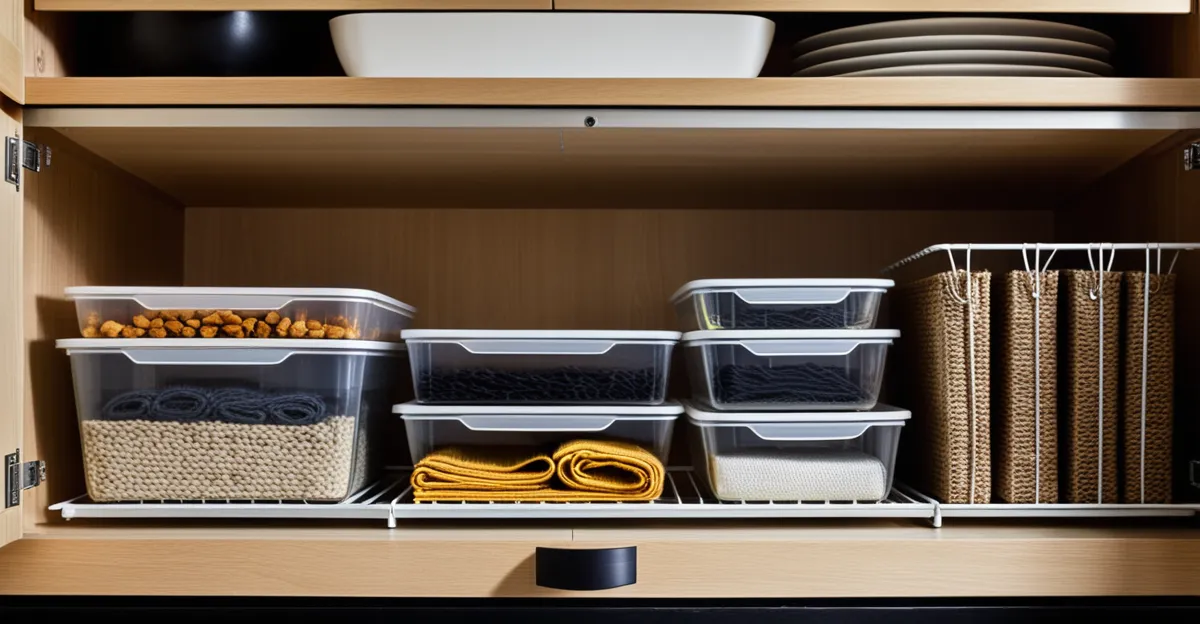Essential habits for maintaining a clutter-free UK home
Maintaining clutter-free home environments in the UK begins with daily tidy-up routines that reset living spaces efficiently. Developing simple habits like spending 10 to 15 minutes each day putting items back in their designated spots prevents clutter from accumulating. This practice is especially important given the typical size constraints of a UK home, where limited space can quickly feel overwhelming.
Common clutter hotspots in UK homes include hallways, kitchens, and living rooms, where shoes, mail, and daily essentials often pile up. Identifying these areas is key to managing clutter proactively. For instance, placing storage baskets or hooks near entrances helps organise coats and keys, adapting well to typical UK housing layouts such as terraced or semi-detached homes with narrow entryways.
Also to see : What Are the Best Ways to Synchronize Modern Decor with Classic British Homes?
Adapting these habits to smaller spaces involves prioritising multifunctional storage and keeping only frequently used items accessible. Regularly evaluating possessions ensures that clutter does not build up, even in compact flats common in UK cities. Emphasising maintenance through consistent UK home organisation efforts results in more manageable, pleasant living environments.
Smart storage solutions tailored for UK homes
Finding effective UK storage ideas is vital for maintaining order in typically compact living spaces. One of the best ways to optimise space is by using under-bed storage, which often goes underutilised. Storage boxes or drawers designed to fit beneath beds provide an ideal spot for storing seasonal clothing, shoes, or spare bedding without encroaching on living areas.
This might interest you : How can you create an energy-efficient UK home without major renovations?
Hallways in UK homes, frequently narrow and busy, benefit greatly from vertical storage solutions. Tall shelving units or wall-mounted hooks make excellent use of vertical space, keeping items like coats, umbrellas, and bags organised yet easily accessible. This approach fits well with typical UK housing layouts, such as terraced houses, where floor space is limited but walls extend upward.
Space-saving furniture also plays a crucial role. Multifunctional pieces, such as ottomans with internal storage or collapsible dining tables, can adapt to fluctuating needs and provide extra room when required. Many UK retailers offer furniture designed specifically with small homes in mind, making it easier to find stylish yet practical solutions.
Efficiently storing seasonal items, such as bulky coats and wellington boots, is essential in the UK climate. Using dedicated storage boxes or waterproof bins helps protect these items and keeps them out of the way during off-seasons, contributing to more clutter-free living areas.
By combining these strategies—under-bed storage, vertical solutions in hallways, multifunctional furniture, and smart seasonal storage—UK homeowners can optimise their living environments and significantly improve small home storage efficiency.
Practical decluttering strategies for British households
Effective decluttering UK begins with a structured, room-by-room approach that suits both flats and houses. Start by focusing on one area, such as the kitchen or bedroom, to avoid feeling overwhelmed. This segmentation helps identify unnecessary items and streamlines the process, improving overall British home organisation. For instance, in kitchens, sorting through expired food and duplicate utensils reduces clutter, while bedrooms benefit from assessing clothing worn in the last year.
A key technique for practical decluttering tips is to categorise items into keep, donate, recycle, or dispose. Many UK charities provide convenient donation points or home collection services, making it easier to part with unused possessions responsibly. This not only clears space but supports community initiatives. Recycling schemes in the UK also accept a variety of items like electronics and textiles, reducing landfill waste.
Paperwork often accumulates quickly and presents a unique challenge in UK households. To manage this, establish a system for regular sorting and shredding of documents. Use labelled files or digital scanning to store essential records securely, reducing physical clutter. Incorporating a weekly paperwork review into British home organisation routines significantly lessens chaos and improves efficiency.
By implementing these strategies, UK residents can maintain tidier living spaces while embracing sustainable disposal methods and adapting to the practical demands of home life.
Scheduling and maintaining regular organisation routines
Keeping a clutter-free home relies heavily on organisation routines UK homeowners can maintain consistently. Setting up cleaning schedules that include weekly and monthly clutter checks helps prevent mess from building up unnoticed. For example, dedicating 15 minutes every Sunday to assess key areas prone to clutter ensures ongoing tidiness without becoming overwhelming.
Involving the whole household in these organisation routines UK strengthens accountability. Assigning simple daily or weekly tasks to family members encourages shared responsibility and distributes the workload effectively. When everyone participates, clutter hotspots are less likely to develop, and the home remains orderly.
Integrating local UK events like spring cleaning or adjusting routines around school terms provides natural motivation to refresh organisation habits. Spring cleaning, a widespread tradition, offers a powerful yearly reset to deep clean and declutter thoroughly. Likewise, the start of school terms is an ideal moment to reorganise homework stations and clear seasonal items, aligning with broader family schedules.
By embedding these adaptable routines into daily life, UK residents enhance the success of their ongoing organisation routines UK efforts, making clutter-free living both sustainable and manageable.







